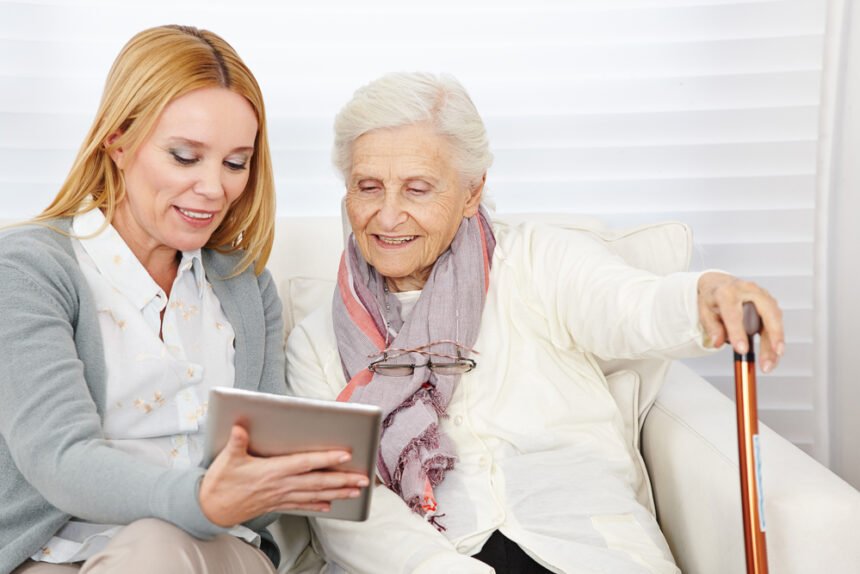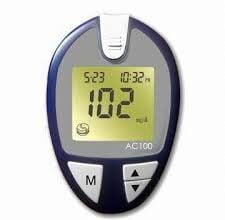As more boomers are aging into the senior market the demand for more independence and the ability to grow older actively and with dignity is increasing as well. By 2030, almost 1 in 5 residents in the U.S. will be of retirement age and because of advances in medicine over their lifetime, more boomers are living longer. As the number of seniors increases, products that cater to the elderly and their caregivers will as well. In fact, the active-aging industry in the U.S. — which includes safety and smart-living technologies, health, and remote care, and wellness and fitness technologies — is expected to triple in the next three years, to nearly $30 billion according to a report by the Consumer Technology Association. “We’re already seeing some really useful ways technology is being used to help people as they age,” said Ben Jonash, an author of The Future of Aging by the Deloitte Center for Health Solutions. Following are five ways seniors and their caregivers can utilize technology to improve their quality of life
- Apps
There are a plethora of apps geared specifically for seniors and their caregivers. There are apps that monitor vital signs. There are apps that keep track of a loved one’s location. There are eye reader apps, senior savings apps, medication reminder apps, panic button apps, and the list goes on. One challenge that comes from all this innovative app technology is keeping everything straight. Sometimes it’s difficult for seniors to remember which app does what and where to find them on their device. In response to this dilemma, apps are coming out that contains a host of services, reminders and information seniors want. It’s a lot easier for them to find everything in one place than to have to keep track of multiple apps. One such company is LiveFreely who has used artificial intelligence to create a product called BUDDY – Your Personal Health Assistant. BUDDY is an app that can be used on an iPhone and most state of the art wearables. It monitors heart rate, blood pressure, and glucose levels. It predicts falls before they occur, monitors health patterns and automatically contacts emergency services and family members when needed. It also allows caregivers to create boundary alerts so they can get notified if their loved one wanders off. There is also a medication management feature, which can be a lifesaver to those that have memory issues.
- Voice Assistants
This is software that can assist people with basic tasks, usually using natural language. Through sophisticated voice recognition, these devices can perform a multitude of tasks and connect a smart phone and a home. They act as a virtual assistant connected to a smart speaker. The two major players in this market are the Amazon Echo and the Google Home. For the senior population, these devices can assist with turning off and on lights, playing music, listening to audiobooks adjusting volume controls, medication and appointment reminders along with much more. In a study of seniors who used digital voice recognition devices, 70% said it helped them stay connected to family and friends and 75% said they used it daily.
- The Internet
The internet not only puts information at the elderly’s fingertips, in many cases, it reduces loneliness and isolation. In addition to emotional benefits, seniors gain mental benefits as well. Using a strategy to play games, looking up information and interacting with others all take brainpower. Many use it to shop, stay in touch with family and make new friends. Put all this together and you have a happier loved one, which makes life easier for the caregiver as well. Many boomers already have some skills using the internet. For those that don’t or those older than boomers, it may be advantageous to consider taking a class or two. The increased quality of life for everyone is well worth the price.
- Assistive Technology Devices
There are many types of assistive devices made specifically for the elderly population. There are assistive tools built into many computer systems that help the elderly be able to see the screen more clearly or hear the sound better. There are stairlifts for those that have trouble walking to get upstairs. There is even cutlery with sensors to assist people with tremors in cooking. Many seniors like to use automatic floor cleaning devices like Roombas. There are also captioned telephones for those with hearing problems and the list goes on.
- Virtual Reality
Virtual reality products aren’t just for kids. There are products on the market today that can help seniors feel like they aren’t missing out. Rendever is a company whose virtual reality product help remove the sense of isolation many seniors have. There are also virtual reality products created for caregivers to be able to understand what a loved one with Alzheimer’s is going through. By being able to identify, the caregiver can provide more understanding and usually has less frustration because they can better grasp what their loved one is experiencing. Conclusion With the number of seniors and life longevity increasing, assistive technology will surely follow. Stay tuned for more innovative helpful products in the near future.








